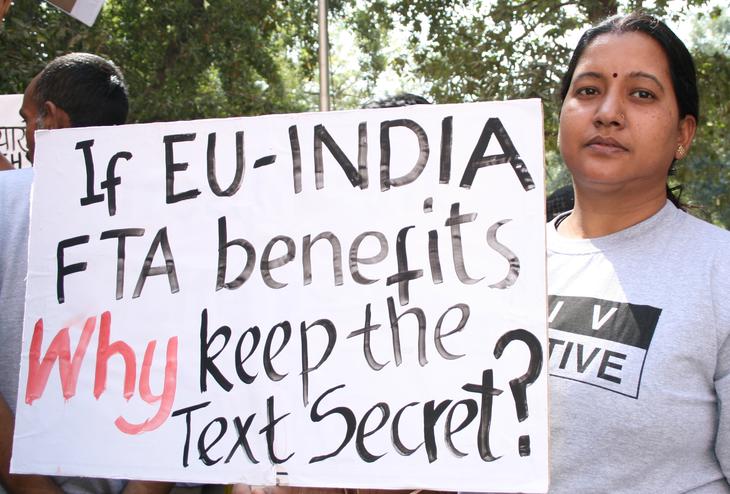Madrid, 7 June 2013 – Access Info Europe notes with regret today’s ruling by the General Court of the European Court of Justice which upholds the European Commission’s refusal to make public documents about the EU-India Free Trade Agreement requested by the lobby watchdog Corporate Europe Observatory.
The central question in the case Corporate Europe Observatory v European Commission revolves around whether or not dissemination of minutes of meetings and email correspondence would harm the EU’s international relations. The Court’s ruling is particularly regrettable given that these documents had been shared with representatives of the European and Indian business communities for consultation. Germany joined the case in support of the European Commission.
“The case raises a bigger question about who has the right to be consulted in the context of a Free Trade Agreement that will directly affect over 500 million people in Europe and 1.3 billion citizens in India“, commented Pam Bartlett Quintanilla. “To exclude even public interest organisations such as Corporate Europe Observatory from participating in such important EU processes will simply continue to undermine the public’s confidence in the EU institutions and their decision-making processes.”
The details of the future EU-India Agreement are of high public interest because of concerns raised in the EU and in India by various civil society organisations, trades unions, farmers’ groups, patients’ organisations and others, about the potentially devastating impacts of the agreement, for example on access to medicines and the livelihoods of Indian farmers and street traders.
Access Info Europe has been closely following this case: the first request filed on the AsktheEU.org platform was a question proposed by MEP Heidi Hautala (now Finnish Minister for International Development) about these talks; the request resulted in only partial release of information.
 Access Info Europe believes that the dissemination of these documents to and communications with business associations and multinational companies can be regarded as “public dissemination”. European Court of Human Rights jurisprudence has established that once information is in the public domain it loses its secret character; hence, it is not appropriate to restrict access to the public at large once information has been shared widely with certain interest groups.
Access Info Europe believes that the dissemination of these documents to and communications with business associations and multinational companies can be regarded as “public dissemination”. European Court of Human Rights jurisprudence has established that once information is in the public domain it loses its secret character; hence, it is not appropriate to restrict access to the public at large once information has been shared widely with certain interest groups.
The General Court, however, has found that the documents at issue were “provided to a specific group of persons and for specific reasons…within the framework of meetings that were not open to the public” and that that related to “issues of obvious special interest to all of the private sector entities involved in that process of consultation, reflection and information exchange.”
Access Info Europe calls on the European Commission to make proactively available any decision-making documents about the development of bilateral trade agreements with other countries. It notes that Mexican CSOs and journalists had similar problems accessing documents on EU-Mexico negotiations, in spite of human rights concerns.
“There is a particular importance in ensuring that the public can scrutinise all EU activity outside the single market which could impact negatively on human rights, labour rights, health, and the environment,” concluded Bartlett.

